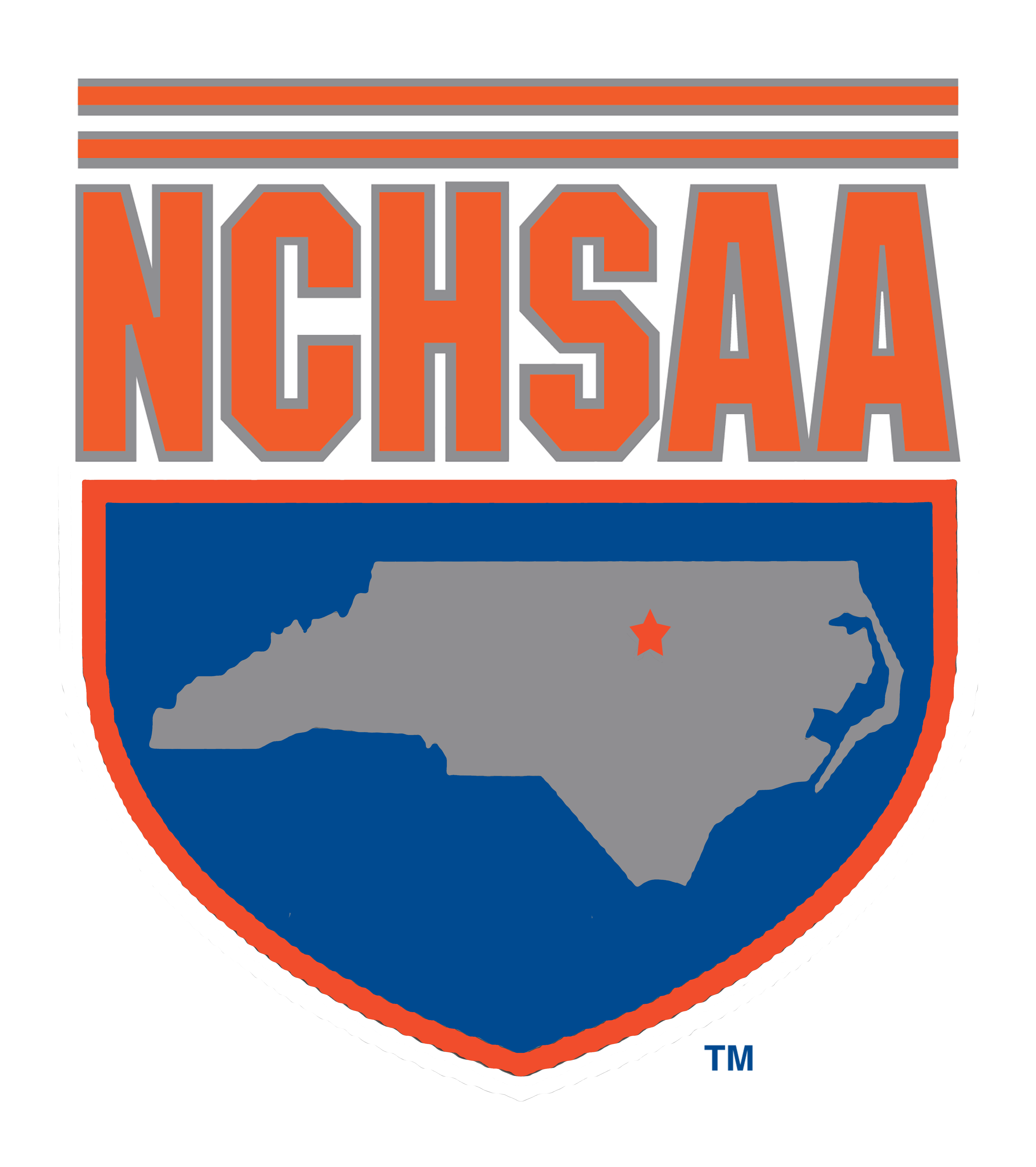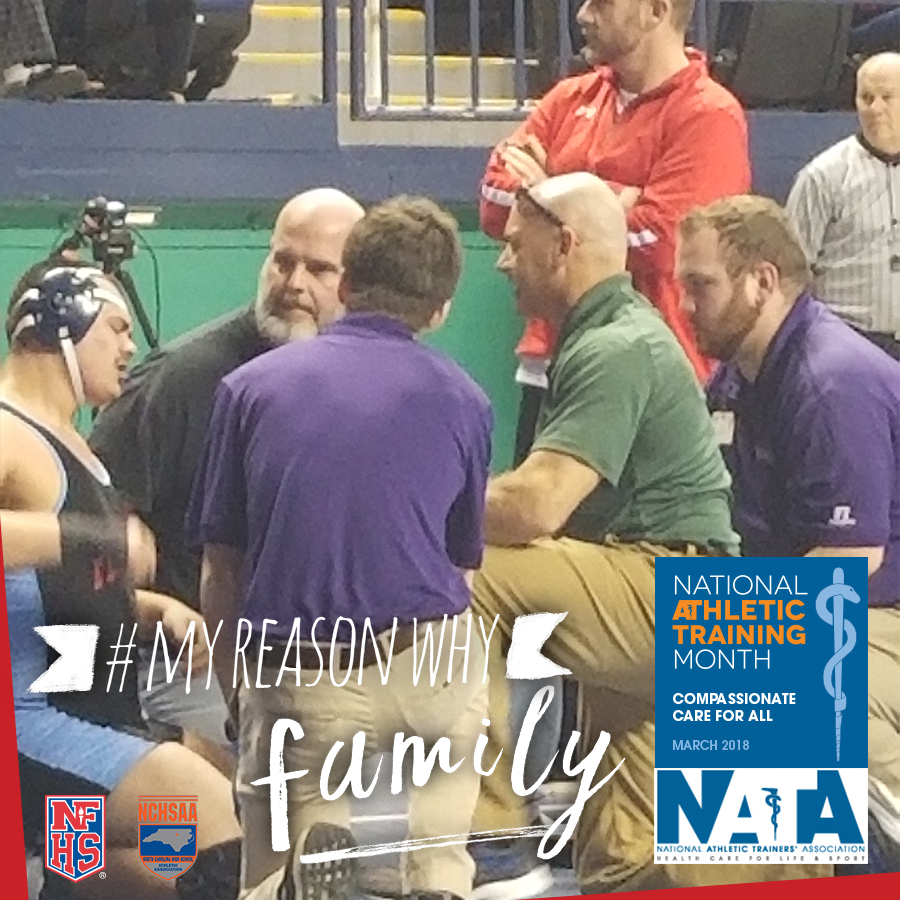The month of March is National Athletic Training Month as promoted by the National Athletic Trainers' Association to spread awareness about the important work of athletic trainers. During the month of March, we'll spotlight Licensed Athletic Trainers across the state, asking them why they participate in education-based athletics as a trainer. We will also talk to Athletic Directors from around the state to describe the impact that having Licensed Athletic Trainers in their schools has had on their students and families.
Our first feature is an interview with Pine Forest High School's Chris Green, a Licensed Athletic Trainer working as a Health & Physical Education Instructor as well as Licensed Athletic Trainer at the school. In this interview, he talks about why he enjoys Athletic Training, and what he enjoys about being in the high school setting as a Licensed Athletic Trainer.
Q: Why did you choose to be an athletic trainer at a secondary school?
Chris: "I completed the Athletic Training program at Campbell University in my mid-thirties. I had a newborn child at home and another on the way and did not want to be gone every night and all weekend, as is the case at a college setting. The secondary school setting provided me the opportunity to be home during school vacations, snow days and summers to be with my children."
Q: What personal and professional fulfillment do you receive from being an Athletic Trainer at a secondary school?
Chris: "I really enjoy being a mentor and clinical educator with the high school students who do not have an interest in participating in sports but want to be a part of sports and sports teams. I enjoy having the ability to engage these young, eager learners in learning about athletic training. Many of the students have an interest in athletic trainer or other health care related fields and being able to develop their interest and confidence in this area is a very personally fulfilling part of my position in the secondary school."
Q: What advice do you have for someone considering a career as a secondary school athletic trainer?
Chirs: "Be ready to work long days and prepare yourself to take the PRAXIS exam. In NC, many of the counties require the Athletic Trainer to also be a certified teacher. This will require teaching a regular school day as well as covering practices and games."
Q:In what way(s) does having a LAT impact cost containment as medical services for your student-athletes are provided on your campus?
Chris: "The immediate response of the parent is to take the Athlete / Child to urgent care or the emergency room. This is costly for the parents of the student athlete as well as the insurance companies. By being present at the high school, I am able to immediately triage the student athlete to the appropriate level of care, often directly to the orthopedic MD the following day. This saves unnecessary ambulance costs, ER visits and missed days of practice."
Q: How are parents of the student-athletes benefited by having a LAT managing their child’s health care?
Chris: "Having a licensed medical professional at a secondary school saves parents and guardians TIME & MONEY. A basic sprain or contusion is often followed by an ER or MD visit. At the high school with a LAT, that same sprain or contusion is examined and a plan of care is determined based on the severity. The LAT is able to direct the student athlete and their parents to the appropriate level of care, often saving them from long and costly ER waits and scheduling an orthopedic visit the following day for X-ray and assessment. The LAT is also updated on current concussion rules and is able to guide the parent through assessment and return to play without unnecessary costs and time spent in medical appointments. The LAT can communicate with the MD for both musculoskeletal and concussion related injuries and guide the student athlete through rehab versus having to be followed by a professional off campus."
Q: Are you compensated by the school system in which you work, the clinic through which you work or perhaps a hybrid of the two?
Chris: "I just left a job where I was compensated by a hospital system for athletic training in a High School. My new job is strictly secondary school compensation I teach health and PE and get a supplement for athletic training. The reason I have made this change is because my children are now high school age (secondary school) and I want to be able to spend more time with them while they are in high school participating in sports."

